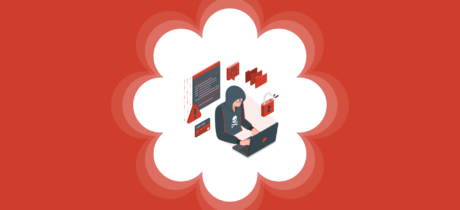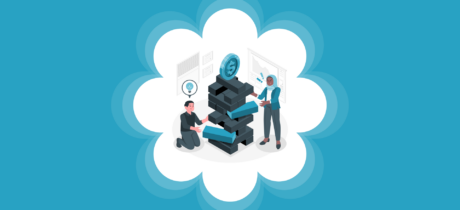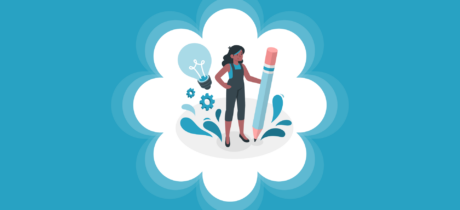
Overcoming WordPress Compatibility Challenges Ensuring Smooth Operations for Agency Projects
Table of Contents
As an experienced content creator with a deep understanding of WordPress compatibility challenges, I have discovered effective strategies to ensure smooth operations for agency projects. The world of WordPress development can be fraught with compatibility issues, from plugins and themes to different browser and device configurations. However, by following best practices and utilizing the right tools, these challenges can be overcome.
One key aspect is staying up-to-date with regular updates and maintenance of WordPress and its components. This ensures that compatibility issues are minimized and the website remains optimized for performance. Additionally, utilizing a staging environment or WordPress sandbox allows for thorough testing and validation of compatibility before deploying changes to the live site. Collaborating with experienced developers and leveraging tools like WP-CLI and PHP Code Sniffer can further aid in identifying and resolving compatibility challenges.
By thoroughly researching and vetting plugins and themes before implementation, and regularly testing and monitoring the website for compatibility issues, agencies can avoid potential pitfalls. Seeking assistance from WordPress support forums and communities also provides valuable insights and solutions for overcoming compatibility challenges. Finally, documenting and maintaining a record of compatibility issues and their resolutions helps with future troubleshooting and prevents similar challenges from arising.
In conclusion, by following these strategies and staying informed about the latest WordPress updates and compatibility issues, agencies can ensure smooth operations for their projects. Overcoming WordPress compatibility challenges is a crucial step in delivering high-quality websites that function seamlessly across different platforms and devices.
Key Takeaways
- WordPress compatibility challenges can hinder smooth operations for agency projects.
- Regular updates and maintenance of WordPress and its components are necessary to ensure compatibility.
- Utilizing a staging environment or WordPress sandbox can help identify and resolve compatibility issues before deploying changes to the live site.
- Following best practices for WordPress development can minimize compatibility issues.
- Regularly testing and monitoring the website for compatibility issues after updates or changes are made is essential.
Understanding WordPress Compatibility Challenges
WordPress compatibility challenges can significantly impact the smooth operations of agency projects. These challenges can arise from compatibility issues with plugins, themes, and different versions of WordPress itself. As a result, it is crucial to understand and address these challenges effectively to ensure the successful development and maintenance of WordPress websites.
Compatibility issues with plugins, themes, and WordPress versions
Plugins and themes play a vital role in extending the functionality and design of WordPress websites. However, not all plugins and themes are created equal, and compatibility issues can arise when they are not well-matched with each other or with the version of WordPress being used. These compatibility issues can cause various problems, such as broken functionality, layout inconsistencies, or even website crashes.
To overcome these challenges, thorough testing and validation of compatibility are necessary. It is essential to test websites on different browsers and devices to ensure that they perform consistently across various platforms. Regular updates and maintenance of WordPress and its components are also necessary to ensure compatibility with the latest technologies and security measures.
Impact on smooth operations for agency projects
Compatibility challenges can have a significant impact on the smooth operations of agency projects. When compatibility issues arise, it can disrupt the development process, causing delays and additional work for developers. This can lead to missed deadlines and increased costs for the agency.
One effective way to mitigate these challenges is to utilize a staging environment or WordPress sandbox. These testing environments allow developers to identify and resolve compatibility issues before deploying changes to the live site. By doing so, potential problems can be addressed early on, minimizing the impact on project timelines and ensuring smooth operations.
Collaborating with experienced developers can also be beneficial in overcoming compatibility challenges. Experienced developers can utilize tools like WP-CLI and PHP Code Sniffer to identify and resolve compatibility issues efficiently. Their expertise and knowledge can help navigate through complex compatibility challenges, ensuring smooth operations for agency projects.
Best practices for minimizing compatibility issues
Following best practices for WordPress development can also help minimize compatibility issues. Adhering to coding standards and using well-supported plugins and themes can reduce the likelihood of compatibility conflicts. It is essential to thoroughly research and vet plugins and themes before implementation to ensure they are reliable and compatible with the website’s requirements.
Keeping up with the latest WordPress updates and staying informed about compatibility issues reported by the WordPress community is crucial. WordPress releases regular updates that address compatibility issues and improve overall performance and security. By staying updated, developers can proactively prevent compatibility challenges and ensure smooth operations for agency projects.
Regularly testing and monitoring the website for compatibility issues after updates or changes are made is essential. This proactive approach allows developers to identify and resolve any compatibility issues before they impact the website’s functionality or user experience.
Seeking assistance and documenting compatibility issues
Inevitably, compatibility challenges may still arise despite taking preventative measures. In such cases, seeking assistance from the WordPress support forums and communities can be invaluable. These platforms provide a wealth of knowledge and insights from experienced developers who may have encountered similar compatibility challenges.
Documenting and maintaining a record of compatibility issues and their resolutions can aid in future troubleshooting and prevent similar challenges from arising. By keeping a comprehensive record, developers can quickly refer back to previous solutions and avoid wasting time on redundant troubleshooting.
In conclusion, understanding and effectively addressing WordPress compatibility challenges are crucial for ensuring smooth operations for agency projects. By following best practices, utilizing testing environments, collaborating with experienced developers, and staying informed about updates and compatibility issues, developers can navigate through these challenges and deliver successful WordPress websites.
Testing and Validating Compatibility in WordPress Development
In the world of WordPress development, ensuring compatibility is crucial for smooth operations and successful agency projects. Compatibility issues with plugins, themes, and different versions of WordPress can often arise during the development process. To overcome these challenges and deliver a seamless user experience, thorough testing and validation of compatibility is necessary.
Importance of testing compatibility with different browsers and devices
When it comes to website development, it’s essential to consider the diverse range of browsers and devices that users may utilize. Testing compatibility across various browsers (such as Chrome, Firefox, Safari, and Edge) and devices (including desktops, laptops, tablets, and mobile phones) is vital to ensure that your WordPress website functions properly and looks visually appealing across all platforms.
By testing compatibility, you can identify any potential issues that may arise and address them before deploying changes to the live site. This proactive approach allows you to fix any layout inconsistencies, broken functionalities, or other compatibility challenges that may hinder the user experience. Additionally, testing compatibility helps to safeguard against negative impacts on SEO and accessibility, ensuring that your website is accessible to all users, regardless of their chosen browser or device.
Methods to identify and resolve compatibility issues in development
To overcome compatibility challenges in WordPress development, there are several methods and best practices that developers can employ. Here are some effective strategies to identify and resolve compatibility issues:
- Utilizing a staging environment or WordPress sandbox: Creating a staging environment or WordPress sandbox allows developers to test changes, updates, and new features without affecting the live site. By simulating the production environment, developers can identify and resolve compatibility issues before deploying changes to the actual website.
- Collaborating with experienced developers: Seeking assistance and collaboration with experienced developers can provide valuable insights and solutions when dealing with compatibility challenges. Their expertise and knowledge can help identify and resolve complex compatibility issues effectively.
- Utilizing tools like WP-CLI and PHP Code Sniffer: Tools like WP-CLI (WordPress Command Line Interface) and PHP Code Sniffer can aid in identifying compatibility challenges by analyzing the codebase and highlighting potential issues. These tools can help developers adhere to coding standards, identify deprecated functions or features, and ensure compatibility with the latest WordPress versions.
- Following best practices for WordPress development: Adhering to coding standards, utilizing well-supported plugins and themes, and following established best practices can minimize compatibility issues. By using reputable plugins and themes and implementing standardized coding techniques, developers can reduce the risk of compatibility challenges.
- Keeping up with the latest WordPress updates: Regularly updating WordPress and its components is essential to ensure compatibility. Staying informed about compatibility issues reported by the WordPress community and promptly applying updates can help prevent compatibility challenges.
- Thoroughly researching and vetting plugins and themes: Before implementing plugins and themes, it is crucial to thoroughly research and vet them for compatibility. Reading reviews, checking the developer’s track record, and ensuring ongoing support and updates can help avoid compatibility issues.
- Regularly testing and monitoring the website: After updates or changes are made, it is essential to regularly test and monitor the website for compatibility issues. By checking different browsers and devices and conducting functional testing, developers can quickly identify and address any compatibility challenges that may arise.
- Seeking assistance from WordPress support forums and communities: In case of compatibility challenges, reaching out to WordPress support forums and communities can provide valuable insights and solutions. Engaging with the WordPress community can help tap into a vast pool of knowledge and expertise.
- Documenting and maintaining a record of compatibility issues: Keeping a record of compatibility issues and their resolutions can aid in future troubleshooting and prevent similar challenges from arising. By documenting the steps taken to resolve compatibility issues, developers can save time and effort in the long run.
In conclusion, testing and validating compatibility is crucial in WordPress development to overcome challenges and ensure smooth operations for agency projects. By prioritizing compatibility testing, collaborating with experienced developers, utilizing tools, following best practices, and staying informed about updates and compatibility issues, developers can deliver high-quality websites that provide an optimal user experience across different browsers and devices.
To know more about overcoming challenges in custom software development, you can refer to this source.
Utilizing Staging Environment or WordPress Sandbox
As an agency working on WordPress projects, ensuring smooth operations and overcoming compatibility challenges is essential for delivering high-quality websites. WordPress compatibility issues can arise due to various factors, including plugins, themes, and updates to the WordPress core. These challenges can disrupt the functionality of the website, affect user experience, and even lead to security vulnerabilities.
Benefits of using a staging environment
One effective way to overcome WordPress compatibility challenges is by utilizing a staging environment or WordPress sandbox. A staging environment is a clone of the live website where developers can test and make changes without affecting the actual site. Here are some key benefits of using a staging environment:
- Isolation and risk-free testing: A staging environment provides a safe space for developers to test new plugins, themes, or updates without the risk of breaking the live site. It allows them to experiment and troubleshoot without impacting the user experience.
- Identifying compatibility issues: By testing changes in a staging environment, developers can identify compatibility issues with plugins, themes, or WordPress versions. They can ensure that all components of the website work seamlessly together before deploying the changes to the live site.
- Collaboration and feedback: Staging environments facilitate collaboration among developers, designers, and clients. It allows them to review and provide feedback on the changes before they go live. This collaborative approach ensures that any compatibility challenges are addressed and resolved effectively.
How it helps in identifying and resolving compatibility challenges before deployment
Utilizing a staging environment or WordPress sandbox can significantly help in identifying and resolving compatibility challenges before deploying changes to the live site. Here’s how:
- Testing with different browsers and devices: Websites need to be compatible with various browsers and devices to provide a consistent user experience. A staging environment allows developers to test the website’s compatibility across different browsers, screen sizes, and operating systems. This testing helps identify any compatibility issues and allows for necessary adjustments.
- Collaboration with experienced developers: Experienced developers can utilize tools like WP-CLI (WordPress Command Line Interface) and PHP Code Sniffer to identify and resolve compatibility challenges. Collaborating with knowledgeable professionals in a staging environment can expedite the identification and resolution of compatibility issues.
- Following best practices: Adhering to best practices for WordPress development, such as coding standards and utilizing well-supported plugins and themes, can minimize compatibility issues. A staging environment provides an ideal space to test and ensure that these best practices are followed before deploying changes to the live site.
- Keeping up with updates and community feedback: Regular updates and maintenance of WordPress and its components are necessary to ensure compatibility. By using a staging environment, developers can test the compatibility of new updates and stay informed about compatibility issues reported by the WordPress community. This proactive approach helps prevent compatibility challenges before they arise.
- Thorough research and vetting: Properly researching and vetting plugins and themes before implementation can help avoid compatibility issues. A staging environment allows developers to test the compatibility of these components before deploying them to the live site. This thorough testing ensures that only reliable and compatible plugins and themes are used.
- Testing and monitoring: After updates or changes are made to the live site, it is essential to regularly test and monitor for compatibility issues. Utilizing a staging environment to replicate these changes and perform thorough testing can help identify any compatibility challenges that may have been missed during development. This proactive approach ensures a smooth and error-free user experience.
- Seeking assistance from the WordPress community: The WordPress community is a valuable resource for resolving compatibility challenges. Engaging with WordPress support forums and communities can provide insights, solutions, and workarounds for compatibility issues. Utilizing a staging environment allows developers to replicate and share the challenges they face, increasing the likelihood of finding effective solutions.
- Documenting compatibility issues: Maintaining a record of compatibility issues and their resolutions can aid in future troubleshooting and prevent similar challenges from arising. A staging environment provides an organized space to document and track these compatibility issues, ensuring that they are appropriately addressed and resolved.
In conclusion, utilizing a staging environment or WordPress sandbox is a valuable strategy for overcoming compatibility challenges in agency projects. It allows for isolated testing, collaboration, and effective resolution of compatibility issues before deploying changes to the live site. By following best practices, staying informed, and thoroughly testing components, agencies can ensure smooth operations and deliver high-quality websites to their clients.
*: WordPress Command Line Interface
Collaborating with Experienced Developers
When it comes to WordPress development, compatibility challenges can often arise, and these challenges can hinder the smooth operations of agency projects. Whether it’s compatibility issues with plugins, themes, or different versions of WordPress itself, it’s important to have effective strategies in place to overcome these obstacles and ensure a seamless experience for both developers and end-users.
Leverage expertise to tackle compatibility challenges
One of the most valuable resources in overcoming WordPress compatibility challenges is collaborating with experienced developers. Their expertise and knowledge can make a significant difference in identifying and resolving compatibility issues efficiently.
Experienced developers have likely encountered a wide range of compatibility challenges in the past and can bring their insights and problem-solving skills to the table. They can analyze the code, identify potential conflicts, and propose effective solutions that ensure smooth operations for agency projects.
Tools like WP-CLI and PHP Code Sniffer for identifying and resolving issues
In addition to collaborating with experienced developers, utilizing the right tools can also aid in identifying and resolving compatibility challenges. Two widely used tools in the WordPress development community are WP-CLI and PHP Code Sniffer.
WP-CLI (WordPress Command Line Interface) allows developers to interact with WordPress using a command-line interface. It provides various commands that can be used to diagnose and troubleshoot compatibility issues. For example, developers can use WP-CLI to check the compatibility of plugins and themes with specific versions of WordPress, ensuring that everything works harmoniously together.
PHP Code Sniffer, on the other hand, is a tool that checks code against a predefined set of coding standards. By running PHP Code Sniffer on WordPress code, developers can identify potential compatibility issues and coding errors that may affect the performance and compatibility of the website. This tool helps enforce best practices and ensures that the code adheres to the recommended standards.
Conclusion
Overcoming WordPress compatibility challenges is essential for ensuring the smooth operations of agency projects. By collaborating with experienced developers and utilizing tools like WP-CLI and PHP Code Sniffer, developers can effectively identify and resolve compatibility issues. It’s crucial to stay informed about the latest WordPress updates and compatibility issues reported by the community, as well as thoroughly researching and vetting plugins and themes before implementation. Regular testing, monitoring, and maintenance are also key to preventing and addressing compatibility challenges. By following these strategies and leveraging the expertise of experienced developers, agencies can navigate compatibility challenges and deliver successful WordPress projects.
Best Practices for WordPress Development
WordPress compatibility challenges can often hinder the smooth operations of agency projects. These challenges can arise due to compatibility issues with plugins, themes, and different versions of WordPress itself. However, by following best practices and implementing certain strategies, developers can overcome these challenges and ensure smooth operations for their agency projects.
Adhering to coding standards for minimizing compatibility issues
One of the key factors in overcoming WordPress compatibility challenges is adhering to coding standards. By following established coding standards, developers can write clean and consistent code that is less likely to cause compatibility issues. Adhering to coding standards also makes the code more readable and maintainable, allowing for easier troubleshooting and debugging in case any compatibility issues do arise.
Tools such as WP-CLI (WordPress Command Line Interface) and PHP Code Sniffer can be incredibly useful in identifying and resolving compatibility challenges. WP-CLI allows developers to manage their WordPress installations from the command line, making it easier to troubleshoot and resolve compatibility issues. PHP Code Sniffer, on the other hand, is a tool that checks code against a set of coding standards, helping developers ensure that their code meets compatibility requirements.
Choosing well-supported plugins and themes to ensure smooth operations
Another important aspect of overcoming WordPress compatibility challenges is choosing well-supported plugins and themes. It’s crucial to thoroughly research and vet plugins and themes before implementing them in a project. This includes checking their compatibility with the current version of WordPress and looking for any reported compatibility issues within the WordPress community.
By selecting plugins and themes that are actively maintained and regularly updated, developers can minimize the risk of compatibility issues. Well-supported plugins and themes are more likely to receive timely updates and fixes, ensuring smooth operations for agency projects.
Regular updates and maintenance for ensuring compatibility
Regular updates and maintenance of WordPress and its components are necessary to ensure compatibility. Developers should stay up to date with the latest WordPress releases and promptly apply any available updates. These updates often include bug fixes and security patches, which can help prevent compatibility issues.
Additionally, testing and validating compatibility with different browsers and devices is crucial. Websites should be tested on various browsers (such as Chrome, Firefox, Safari, and Edge) and devices (including desktops, laptops, tablets, and mobile devices) to ensure consistent performance and compatibility across different platforms.
Utilizing a staging environment for identifying and resolving compatibility issues
To minimize the impact of compatibility issues on live websites, it is recommended to utilize a staging environment or WordPress sandbox. A staging environment is a separate copy of the website where developers can test and make changes before deploying them to the live site. By using a staging environment, developers can identify and resolve compatibility issues without affecting the live website.
Collaborating with experienced developers during the testing phase can be beneficial, as their expertise can help identify and resolve compatibility challenges. Moreover, seeking assistance from the WordPress support forums and communities can provide valuable insights and solutions for compatibility issues.
Staying informed and documenting compatibility issues
To prevent future compatibility challenges, it’s essential to stay informed about compatibility issues reported by the WordPress community. By keeping up with the latest news and updates, developers can proactively address any known compatibility issues and plan accordingly.
Documenting and maintaining a record of compatibility issues and their resolutions can also aid in future troubleshooting. Having a reference of past challenges and their solutions can save time and prevent similar compatibility issues from arising in future projects.
In conclusion, overcoming WordPress compatibility challenges and ensuring smooth operations for agency projects requires adhering to coding standards, choosing well-supported plugins and themes, regular updates and maintenance, utilizing a staging environment, and staying informed about compatibility issues. By following these best practices and implementing the recommended strategies, developers can minimize compatibility issues and deliver successful WordPress projects.
Staying Informed and Preventing Compatibility Challenges
Keeping up with WordPress updates and compatibility issues reported by the community
As a WordPress developer, it is crucial to stay informed about the latest updates and compatibility issues reported by the WordPress community. By keeping up with these updates, you can ensure that your agency projects run smoothly without any compatibility challenges.
WordPress regularly releases updates to improve functionality, security, and compatibility. These updates often include bug fixes and enhancements that address compatibility issues with plugins, themes, and different versions of WordPress itself. By staying up to date with these updates, you can proactively prevent compatibility challenges before they arise.
One way to stay informed is by subscribing to official WordPress blogs and newsletters. These sources provide valuable information about the latest updates, known compatibility issues, and recommended solutions. Additionally, participating in WordPress forums and communities allows you to engage with other developers and gain insights into common compatibility challenges and their resolutions.
Researching and vetting plugins and themes before implementation
Another important aspect of preventing compatibility challenges is thoroughly researching and vetting plugins and themes before implementing them in your projects. Incompatibilities between different plugins and themes can lead to conflicts and errors that can disrupt the smooth operation of your agency projects.
Before choosing a plugin or theme, it is essential to review its documentation, user reviews, and ratings. Look for plugins and themes that have a good track record of compatibility and regular updates. Check if the plugin or theme is actively maintained and supported by the developer, as this ensures that any compatibility issues will be addressed promptly.
Additionally, consider reaching out to the plugin or theme developer directly with any questions or concerns regarding compatibility. They may be able to provide valuable insights or recommendations based on their expertise.
Regular testing and monitoring for compatibility issues
Even after implementing WordPress updates and vetting plugins and themes, it is important to regularly test and monitor your website for compatibility issues. Compatibility challenges can arise due to various factors, such as changes in browser technologies or conflicts between different plugins.
Testing your website on different browsers and devices is crucial to ensure compatibility across a wide range of platforms. Additionally, consider utilizing a staging environment or WordPress sandbox to identify and resolve compatibility issues before deploying changes to the live site. These testing environments allow you to experiment with updates and changes without affecting the live website.
Monitoring your website for compatibility issues after updates or changes are made is equally important. Regularly check for any unexpected behavior, errors, or layout issues that may indicate compatibility challenges. By promptly addressing these issues, you can prevent them from causing significant disruptions to your agency projects.
Seeking assistance from WordPress support forums and communities
In the world of WordPress development, collaboration and community support play a vital role in overcoming compatibility challenges. When faced with a compatibility issue that you are unable to resolve on your own, seeking assistance from WordPress support forums and communities can provide valuable insights and solutions.
These forums and communities are filled with experienced developers who have encountered and resolved a wide range of compatibility challenges. By describing your specific issue and seeking advice, you can tap into the collective knowledge and expertise of the community. Often, you will receive helpful suggestions, alternative approaches, or even code snippets that can help resolve the compatibility challenge.
Documenting and maintaining a record of compatibility issues
To prevent future compatibility challenges and streamline troubleshooting efforts, it is essential to document and maintain a record of compatibility issues and their resolutions. This record serves as a valuable resource that you can refer to when encountering similar challenges in the future.
When documenting compatibility issues, include details such as the specific plugins, themes, or WordPress versions involved, the symptoms of the compatibility challenge, and the steps taken to resolve it. By maintaining a well-organized record, you can easily track patterns, identify recurring issues, and implement preventive measures to ensure smooth operations for your agency projects.
By staying informed about WordPress updates, thoroughly researching plugins and themes, regularly testing and monitoring for compatibility issues, seeking assistance from the community, and documenting compatibility challenges, you can overcome WordPress compatibility challenges and ensure smooth operations for your agency projects.
Citation: Codeable – How to Maximize Your WordPress Development Productivity: 5 Tools Enlisted
Testing and Monitoring for Compatibility After Updates
In the fast-paced world of web development, ensuring compatibility with various platforms and technologies is crucial for the smooth operation of agency projects. WordPress, being one of the most popular content management systems, often presents its own set of compatibility challenges. These challenges can arise from issues with plugins, themes, or even different versions of WordPress itself.
Importance of regularly testing and monitoring website after changes
Regularly testing and monitoring a website after updates or changes are made is essential to identify and resolve compatibility issues. Just like a car that needs regular maintenance to ensure its performance, a website requires constant attention to maintain its compatibility with different browsers, devices, and WordPress components.
When you update WordPress or any of its components, it’s important to test and validate compatibility across different browsers and devices. Ensuring that your website looks and functions as intended on popular browsers like Chrome, Firefox, and Safari, as well as on various mobile devices, can help you reach a wider audience and deliver a seamless user experience.
Essential for identifying and resolving compatibility issues
Testing and monitoring your website after updates or changes are made is essential for identifying and resolving compatibility issues. By utilizing a staging environment or a WordPress sandbox, you can safely test your website without impacting the live site. This allows you to identify any compatibility challenges before deploying the changes to your production environment.
Collaborating with experienced developers and utilizing tools like WP-CLI and PHP Code Sniffer can also aid in identifying and resolving compatibility challenges. These tools can help you analyze your code and ensure it adheres to coding standards, reducing the risk of compatibility issues.
Following best practices for WordPress development, such as adhering to coding standards and utilizing well-supported plugins and themes, can further minimize compatibility issues. By choosing reputable plugins and themes and keeping them up to date, you can avoid potential conflicts and ensure a smoother website operation.
It is also important to keep up with the latest WordPress updates and stay informed about compatibility issues reported by the WordPress community. By staying proactive and addressing compatibility challenges early on, you can prevent potential disruptions to your agency projects.
Thoroughly researching and vetting plugins and themes before implementation can help avoid compatibility issues. Reading reviews, checking compatibility information, and considering the reputation of the plugin or theme developer can go a long way in ensuring a smooth and compatible website.
Seeking assistance from WordPress support forums and communities can provide valuable insights and solutions for compatibility challenges. These platforms allow you to connect with other WordPress users and developers who may have encountered similar issues and can provide guidance or solutions.
Lastly, documenting and maintaining a record of compatibility issues and their resolutions can aid in future troubleshooting and prevent similar challenges from arising. By keeping track of the steps taken to resolve compatibility issues, you can save time and effort in the future and ensure a smoother workflow for your agency projects.
In conclusion, testing and monitoring your website for compatibility issues after updates or changes are made is crucial for ensuring the smooth operation of agency projects. By following best practices, collaborating with experienced developers, and staying proactive in addressing compatibility challenges, you can overcome WordPress compatibility challenges and deliver outstanding results for your clients. Remember, a well-maintained and compatible website is the foundation for success in the digital world.
Seeking Assistance and Maintaining Compatibility Records
As an agency working with WordPress, it’s not uncommon to encounter compatibility challenges that can hinder the smooth operations of your projects. These challenges can arise from various factors such as plugins, themes, and different versions of WordPress itself. In order to ensure a seamless experience for both your team and clients, it’s important to overcome these compatibility challenges and maintain a record of them for future troubleshooting.
Accessing WordPress support forums and communities for solutions
When faced with compatibility issues, one of the first steps you can take is to seek assistance from the vast WordPress support forums and communities available online. These forums are filled with experienced developers and WordPress enthusiasts who can offer valuable insights and solutions to your specific challenges. Whether it’s a problem with a particular plugin or a theme, chances are someone in the community has encountered a similar issue before and can provide guidance.
By actively participating in these forums, asking questions, and sharing your own experiences, you not only gain access to a wealth of knowledge but also contribute to the overall WordPress community. Remember to be respectful and provide as much detail as possible when seeking assistance, as this will help others understand your issue and provide more accurate solutions.
Documenting compatibility issues and resolutions for future troubleshooting
In order to prevent similar compatibility challenges from arising in the future, it’s crucial to maintain a record of the issues you encounter and their respective resolutions. This record can serve as a valuable resource for your team, enabling them to troubleshoot similar problems more efficiently and effectively.
When documenting compatibility issues, be sure to include detailed information such as the specific plugins, themes, and WordPress versions involved, as well as any steps taken to resolve the issue. Additionally, consider including screenshots or code snippets that illustrate the problem and its solution. This documentation will not only help your team but also future developers who may encounter similar compatibility challenges.
To maintain these records, you can utilize various tools and systems such as project management software, online documentation platforms, or even a simple spreadsheet. Choose a method that works best for your team’s workflow and ensure that the records are easily accessible and regularly updated.
Remember, maintaining compatibility records is an ongoing process. As you continue to work on your projects, new compatibility challenges may arise, and it’s important to document them accordingly. By doing so, you’ll be able to build a comprehensive knowledge base that empowers your team to overcome compatibility issues with greater ease and efficiency.
Click here to read more about how a WordPress virtual assistant can help you scale your business for success.
Frequently Asked Questions
What are some challenges that can hinder smooth operations for agency projects in WordPress?
Compatibility challenges can hinder smooth operations for agency projects in WordPress. These challenges can arise due to issues with plugins, themes, and different versions of WordPress during development.
Why is testing and validating compatibility with different browsers and devices crucial?
Testing and validating compatibility with different browsers and devices is crucial to ensure that the website functions properly and looks consistent across various platforms. This helps provide a seamless user experience.
How can regular updates and maintenance of WordPress and its components ensure compatibility?
Regular updates and maintenance of WordPress and its components are necessary to ensure compatibility with the latest technologies and security standards. These updates often include bug fixes and improvements that address compatibility issues.
How can a staging environment or WordPress sandbox help identify and resolve compatibility issues?
Utilizing a staging environment or WordPress sandbox allows you to test changes and updates before deploying them to the live site. This helps identify and resolve compatibility issues without affecting the website’s functionality and user experience.
How can experienced developers and tools like WP-CLI and PHP Code Sniffer aid in identifying and resolving compatibility challenges?
Collaborating with experienced developers who are familiar with WordPress development can provide valuable insights and expertise in identifying and resolving compatibility challenges. Tools like WP-CLI and PHP Code Sniffer can aid in identifying coding issues and ensuring adherence to coding standards.
What are some best practices for WordPress development to minimize compatibility issues?
Following best practices for WordPress development, such as adhering to coding standards and utilizing well-supported plugins and themes, can minimize compatibility issues. Thoroughly researching and vetting plugins and themes before implementation can also help avoid compatibility challenges.
How can staying informed about compatibility issues reported by the WordPress community help prevent compatibility challenges?
Keeping up with the latest WordPress updates and staying informed about compatibility issues reported by the WordPress community can help prevent compatibility challenges. This allows you to take proactive measures and address potential issues before they impact your website.
Why is regularly testing and monitoring the website for compatibility issues essential?
Regularly testing and monitoring the website for compatibility issues after updates or changes are made is essential to ensure that the website continues to function properly. This helps catch any compatibility issues early on and allows for timely resolution.
How can seeking assistance from WordPress support forums and communities help with compatibility challenges?
Seeking assistance from WordPress support forums and communities can provide valuable insights and solutions for compatibility challenges. Other users and developers may have encountered similar issues and can offer guidance or troubleshooting tips.
How can documenting and maintaining a record of compatibility issues and their resolutions aid in future troubleshooting?
Documenting and maintaining a record of compatibility issues and their resolutions can aid in future troubleshooting. This record serves as a reference for similar challenges that may arise and helps streamline the resolution process.







